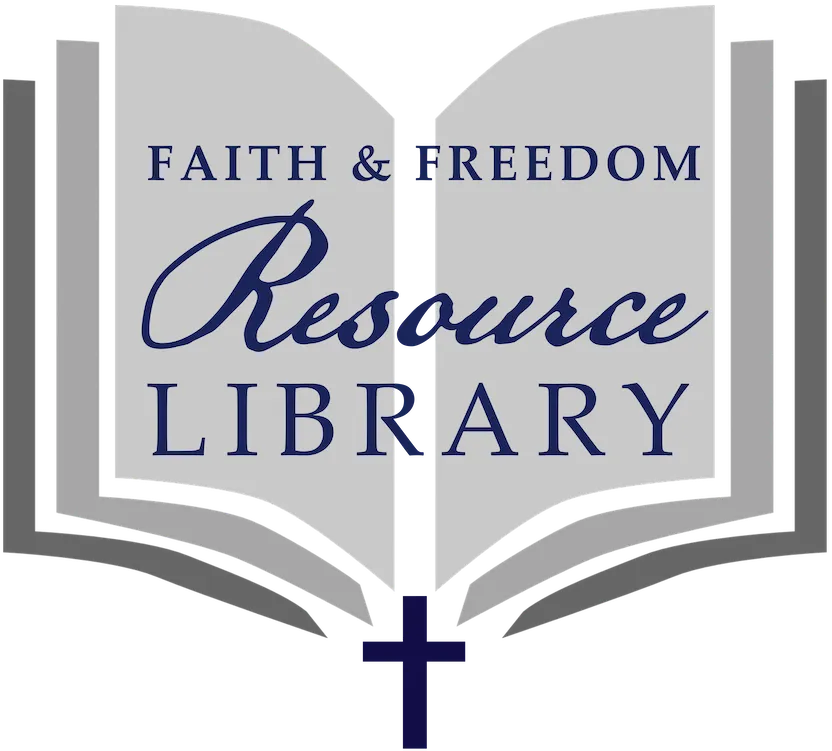The First Amendment Protects Freedom of Expression, Especially Expression of One’s Personal Conscience and Religious Identity
By Prof. William Wagner[1]
In 303 Creative LLC et al. v. Aubrey Elenis, et al. the U.S. Supreme Court decides whether applying a public accommodation law to compel an artist to speak or stay silent violates the Free Speech Clause of the First Amendment. In essence, the Court will decide whether State authorities may, by force of law and punishment: 1) censure viewpoints and ideas inconsistent with preferred political preferences; and 2) compel viewpoints and ideas consistent with preferred political preferences.
Ratified in 1791, the First Amendment to the United States Constitution provides that “Congress shall make no law respecting the establishment of religion or prohibiting the free exercise thereof; or abridging the freedom of speech . . . .” U.S. Const. amend I. This language includes no exemption for laws that compel or censure a person’s speech because the government disagrees with the idea or viewpoint expressed.
Bearing witness to the intolerant laws of seventeenth century England that persecuted individuals because of their religious views, the First Amendment balances the need for freedom of speech and religion with the need of a well-ordered central government. See, e.g., Mark A. Knoll, A History of Christianity in the United States and Canada 25-65 (1992); F. Makower, The Constitutional History and Constitution of the Church of England 68-95 (photo. reprt. 1972) (1895). The First Amendment Speech Clause embodies an ideal that is uniquely American—that true liberty exists only where men and women are free to hold and express conflicting political and religious viewpoints. Under this aegis, the government must not interfere with its citizens living out and expressing their freedoms but embrace the security and liberty only a pluralistic society affords.
The Free Speech Clause protects expression of a religious person’s artistic viewpoints and ideas, subjecting a State to the strictest of scrutiny if it substantially interferes. See, e.g., Masterpiece Cakeshop, LTD., v. Colorado Civil Rights Commission, 138 S. Ct. 1719, 1745-46 (2018) (Thomas, J., concurring) (noting, the necessity of applying “the most exacting scrutiny” in a case where Colorado’s public accommodation law penalized expression of cake designer) citing Texas v. Johnson, 491 U.S. 397, 412 (1989); accord, Holder v. Humanitarian Law Project, 561 U.S.1, 28 (2010); see also, Reed v Town of Gilbert, Ariz., 576 U.S. 155, 164 (2015). In Shurtleff v. Boston, No. 20-1800 (May 2, 2022) the Supreme Court unanimously reaffirmed that government “may not exclude speech based on ‘religious viewpoint’; doing so ‘constitutes impermissible viewpoint discrimination,’” (quoting Good News Club v. Milford Central School, 533 U. S. 98, 112 (2001)). See also, Rosenberger v. Rector and Visitors of Univ. of Va., 515 U. S. 819, 828-830 (1995).
The Civil Rights Division of the Colorado Civil Rights Commission enforces the Colorado Anti-Discrimination Act (CADA). While the Division investigates, the Commission adjudicates. Pet. App. 175a-176a. In its most recent endeavor to force acceptance of its political policy preferences, Colorado used this public accommodation law to censure Petitioner’s viewpoint, a religious viewpoint consistent with her conscience and inherent in her personal religious identity; moreover, Colorado compelled her to engage in expression conflicting with it. Pet. App. 23a-24a; 28a; 34a. Remarkably, a panel of the Tenth Circuit found Colorado’s substantial interference with Petitioner’s First Amendment liberty justified. Unless the Supreme Court affirmatively acts to correct the Tenth Circuit’s disturbing diminishment of the Free Speech Clause and its systemic misapplication by Colorado officials and legislators, Colorado’s action, as a practical matter, denudes any meaningful constitutional protection for liberty as a limit on the exercise of State power.
When Government Policy Preferences Unfairly Interfere with Fundamental First Amendment Liberty
Ubiquitous special preferences for sexual orientation and gender identity (hereinafter SOGI), imposed by states in the name of protecting freedom, too often threaten fundamental First Amendment liberties. These government actions necessarily require religious people, here a religious artist, to relinquish their right to artistic expression inhering in their personal religious identity.
Through the faith perspective of her religious identity, Petitioner web designer and artist Lorie Smith creates original content for websites. Pet. App. 21a, 179-181a. She desires to bring glory to God and does so via creating unique expressions that impart her thoughts, views, and conscience, including her understanding of God’s design for marriage as the union of one man and one woman. Pet. App. 179a-180; 187a-188a. Lori hoped to expand her business to include wedding websites promoting her understanding of God’s design for marriage, encouraging commitments “to lifelong unity and devotion….” Pet. App. 187a-188a
The State said no, even though it concedes Lori is “willing to work with all people regardless of … race, creed, sexual orientation, and gender.” Pet. App. 53a; 184a. Why? Because Lori, as a matter of who she is, is unable to engage in artistic expression promoting a message conflicting with her religious conscience and identity. Pet. App. 184a.[2]
Lori hoped to express an online message explaining why, as a religious person and artist, she could only engage in speech consistent with her religious identity / religious faith. Pet. 188a-189a. Here the State said no, relying on CADA to restrict her from engaging in expression consistent with her conscience and inherent in her personal religious identity, while compelling her to engage in expression conflicting with it. Pet. App. 23a-24a; 28a; 34a.
It is uncontested that the government-imposed speech conditions in the case at bar substantially interfere with Lori’s freedom of speech. Because Colorado’s law restricts and compels expression based on content, the Tenth Circuit correctly held that the government must satisfy strict scrutiny. Pet. App. 23a-24a. In my view, the Tenth Circuit’s majority opinion grievously erred, however, when it held that CADA survived strict scrutiny. Pet. App. 28a (finding that Colorado held a compelling interest in safeguarding access to Lorie’s “unique services” notwithstanding that “LGBT consumers may be able to obtain wedding website design services from other businesses.”).
Why the Tenth Circuit’s Ruling Conflicts with the Supreme Court’s Prior Speech Precedents
Application of a public-accommodation law can unconstitutionally burden protected speech when the law targets speech, alters the expressive content of the message, or interferes with an individual’s choice to not propound a viewpoint conflicting with their beliefs; if a public accommodation law “ha[s] the effect of declaring … speech itself to be the public accommodation,” the First Amendment applies with full force. Hurley v. Irish American, Gay, Lesbian and Bisexual Group of Boston, Inc., 515 U.S. 557, 572-73 (1995); accord, Boy Scouts of America v. Dale, 530 U.S. 640, 654, 657-659 (2000); Masterpiece Cakeshop, 138 S. Ct. at 1741 (Thomas, J., concurring).
The Tenth Circuit’s ruling cannot be reconciled with the Supreme Court’s holding in Hurley, 515 U.S. at 568-81. In Hurley, the Court held that the First Amendment gave the organizers of a private St. Patrick’s Day parade the right to not communicate a message about homosexual conduct to which they objected. Id. The First Amendment protected the parade organizers’ right “not to propound a particular point of view,” id. at 575, and the Court protected the “principle of speaker’s autonomy” id. at 580. In doing so, the Court unanimously ruled that a State’s public accommodations law must not be applied to compel a speaker to communicate an unwanted message or express a contrary viewpoint. The Court condemned the notion that public accommodation laws should force free individuals to express and convey messages to which they disagree because “this use of the State’s power violates the fundamental rule of protection under the First Amendment, that a speaker has the autonomy to choose the content of his own message.” Id. at 573 (emphasis added).
The Hurley Court noted that, “this general rule, that the speaker has the right to tailor the speech, applies not only to expression of value or endorsement, but equally to statements of fact the speaker would rather avoid,” id. at 573, and the benefit of this rule is not limited to the press or just some people but is “enjoyed by business corporations generally.” Id. at 574.
The Supreme Court, in later applying Hurley, noted that “the parade organizers did not wish to exclude the GLIB members because of their sexual orientations, but because they wanted to march behind a GLIB banner.” Dale, 530 U.S. at 653–54. In Hurley, the parade organizers did not seek to discriminate, but wished to communicate their St. Patrick’s Day message as they saw fit, without being compelled to adopt and promote other messages in their parade.
Like the parade organizers whose First Amendment rights the Supreme Court protected in Hurley, Lori does not, and has never, wished to discriminate against anyone based on their sexual orientation or who they are. Given that Lori willingly serves anyone without regard to their sexual orientation lifestyle, it is not her customers’ sexual orientation that creates problems in this case. Rather, it is solely the State’s action compelling and censuring Lori’s expression.
Lori believes that all people are created equal, but she reserves the liberty to abstain from affirming that all conduct is equal—especially when such a message violates the religious faith central to her identity. The First and Fourteenth Amendments afford the liberty to not be forced or compelled by the State to do so. As the Supreme Court previously declared, “While the law is free to promote all sorts of conduct in place of harmful behavior, it is not free to interfere with speech for no better reason than promoting an approved message or discouraging a disfavored one, however enlightened either purpose may strike the government.” Hurley, 515 U.S. at 579. Government interpretation that punishes a dissenting opinion by promoting another is unconstitutional; “[t]olerance is a two-way street. Otherwise, the rule mandates orthodoxy, not anti-discrimination.” Ward v. Polite, 667 F.3d 727, 735 (6th Cir. 2012).
Government SOGI preferences, enforced via censured and compelled speech regulation, too often unconstitutionally collide with the expression protected by the First Amendment. State enforcement of speech directives advancing such preferences frequently weaponize State action to eliminate the Free Speech Clause as an important constitutional constraint on the exercise of State authority. Indeed, religious people in our nation face a far more onerous predicament than the drafters and ratifiers of the Constitution and Bill of Rights could ever have imagined.
The beacon of liberty fails to shine when freedom dies on the pulpit of the civil authority’s demands to supplant its will and opinion of morality for that of its citizens. The promise of liberty amounts to nothing more than empty subterfuge when the State punishes its citizens for expressing their thoughts and views inhering in their personal identity. Persecution of religious identity via censorship and compelled speech, imposed by the State upon Petitioner, must not stand in the United States. The First Amendment, promulgated to protect free expression and religious tolerance, requires reversal of the Tenth Circuit’s oppressive and overreaching judgment.
The Tenth Circuit agreed that an unelected government regime, through the power of the State, can both censure and compel a devout religious artist’s expression of her artistic message to comport with the government’s political policy preferences.[3] If this holding is correct, the American experiment is effectively over. For devout citizens, such a rule fatally erodes freedom of speech, thought, and conscience inherent to one’s dignity, autonomy, and identity. If government can compel citizens in their speech to dishonor God or else lose their livelihoods, we are far down the road to tyranny, a tyranny not so dissimilar from that which caused so many to flee so far to our shores all those years ago.
Preserving unalienable First Amendment freedoms promotes good governance, peace, stability, prosperity, and charity. Os Guinness, The Global Public Square (2013). Moreover, this fundamental liberty provides the foundation for understanding the inherent value of every human being, thereby promoting the inviolable dignity and worth of all human life.
Conversely, when government suppresses expression of religious identity and the free expression of religious ideas, it often results in tragic consequences. From the Inquisition to the current Russian regime, authoritarian restrictions on this fundamental liberty have led to tyranny and the abuse of basic human rights.
There can be no doubt that Obergefell’s personal identity jurisprudence informs against government authorities who use public policy to discriminate against religious people by compelling and censuring expression. Indeed, government must not use its power in ways hostile to religion or religious viewpoints under this new “autonomy” paradigm. Masterpiece Cakeshop, 138 S. Ct. at 1731. Certainly, government ought to protect and not impede the free expression of conscience. Cf. Trinity Lutheran, 137 S. Ct. at 2022 (holding the government violates the Free Exercise Clause if it conditions a generally available public benefit on an entity giving up its religious character); cf. Burwell v. Hobby Lobby Stores, Inc., 134 S. Ct. 2751, 2775 (2014) (holding the RFRA applies to federal regulation of activities of closely held for profit companies); Hosanna-Tabor Evangelical Lutheran Church & Sch. v. EEOC, 565 U.S. 171, 196 (2012) (barring an employment discrimination suit brought against a religious school). State actions must uphold constitutionally protected freedoms, not grant special protections for some, while coercing others to engage in expression adverse to their personal identity and conscience.
————–
[1] Professor Wagner currently holds the Faith & Freedom Center Distinguished Chair at Spring Arbor University Foundation. In the 303 Creative case, he represented members of the Colorado Legislature, 73rd General Assembly, as Amici Curiae.
[2] If an individual seeks such content, she respectfully refers them to another website designer. Pet.185a.
[3] This could happen to any devout Christian, Jew, Muslim, or other person who disagrees with the government regime on this issue.









